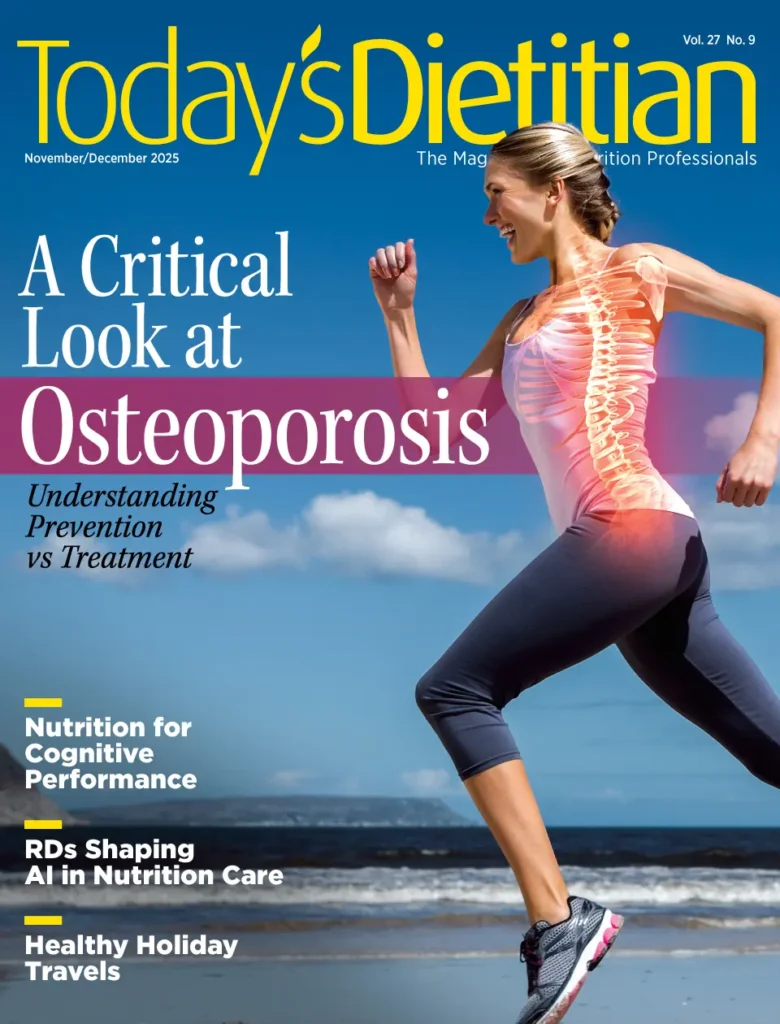By Densie Webb, PhD, RD
Every year, U.S. News & World Report magazine evaluates and ranks the best diets and diet programs, and each year the Mayo Clinic Diet has been in the top tier. In the latest review, the Mayo Clinic Diet was rated #1 Best Diet Program, tied with WW (formerly known as Weight Watchers). The Mayo Clinic Diet was first published in 1949 by the Mayo Clinic Committee on Dietetics as the Mayo Clinic Diet Manual. It was most recently updated in December 2021, with the help of a medical team of weight loss experts, to accommodate new research and offer a host of new online tools that make planning and tracking clients’ diet and physical activity easier long term.
“We designed the Mayo Clinic Diet based on scientific evidence so that it’s safe and effective for weight loss, as well as being practical, enjoyable, and sustainable over time,” says Donald D. Hensrud, MD, MPH, an associate professor of preventive medicine and nutrition at the Mayo Clinic College of Medicine in Rochester, Minnesota.
The stated goal of the Mayo Clinic Diet is to help clients and patients focus on creating a system of healthful habits that promote a healthful lifestyle. “We have partnered with Digital Wellness, a company with a lot of experience in weight management, to offer the Mayo Clinic Diet on a new platform,” Hensrud says.
While the fundamental aspects of the diet haven’t changed—it emphasizes unlimited consumption of fruits and vegetables and moderate amounts of whole-grain carbohydrates, lean sources of protein, and low-fat dairy—the tools and usability of the new platform make it more practical to follow long term. After the quick start phase, which may or may not be right for some clients, the program is designed to foster a lifelong approach to diet and health, providing a steady weight loss of 1 to 2 lbs per week.
Among the new additions to the diet include the following:
- a short assessment to discover your client’s mindset and motivation before deciding which approach might be the best fit;
- a variety of new meal plans, including Healthy Keto, High-Protein, Vegetarian, Mediterranean, and Gut Health;
- online tools and apps to track progress, log meals, physical activity, measurements, and weight;
- virtual group video sessions with Mayo Clinic doctors and professionals;
- a nutrient database of more than 1 million foods;
- a quick start “Lose It Phase” to jumpstart weight loss in two weeks; and
- the Mayo Clinic Diet Members Community on Facebook for members to connect, share tips and recipes, and inspire motivation. (Only members can see who’s in the group and what they post.)
“Identifying well thought-out, simple goals is an important step in making lasting behavioral changes, regardless of a weight-related outcome,” says Alicia Romano, MS, RD, LDN, a Boston-based clinical dietitian at Francis Sterm Nutrition Center at Tufts Medical Center. “The new Mayo Clinic Diet now has a Habit Optimizer, which seems to focus on health-related habits that aren’t weight centric.”
Hensrud says, “We believe it’s one of the most comprehensive digital programs there is, coupled with a tried and true program.” While there aren’t any recent studies to validate the efficacy of the diet, Hensrud says studies currently are being designed to test its effectiveness.
Nevertheless, Romano says she isn’t a fan of the “abundant focus” on weight loss. “The promise of a certain amount of weight loss may set a person up for failure.
“As a nutrition professional, you can use the best of the Mayo Clinic Diet program and skip over the ‘Lose it Phase’ or the ‘Healthy Keto’ eating plan, and de-emphasize the ‘diet’ aspect of the program, if they aren’t in sync with your approach to healthful eating.”
More detailed information about the program and sample diet plans is available at
https://diet.mayoclinic.org/us/.
In addition, the Mayo Clinic has published a new cookbook, Cook Smart, Eat Well (Mayo Clinic Press, 2022), to accompany the updated diet.
— Densie Webb, PhD, RD, is a freelance writer, editor, and industry consultant based in Austin, Texas.


